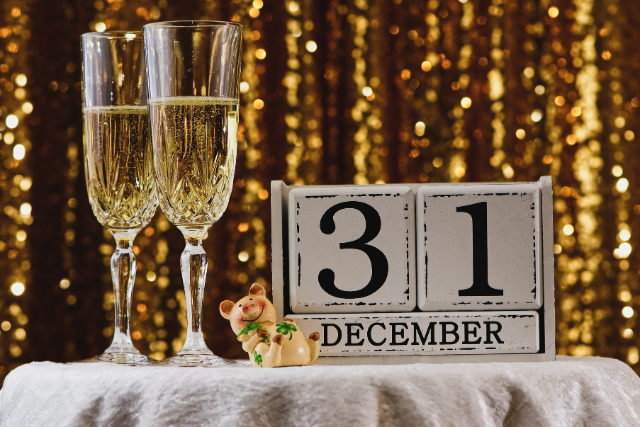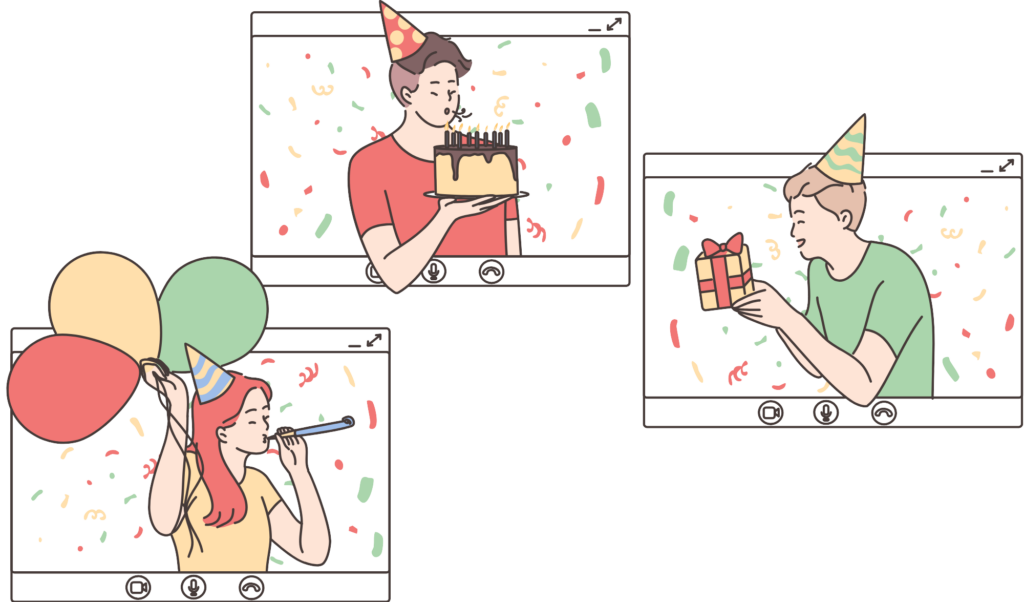Global Career Guide


- Jobs in Japan @ Daijob.com
- Global Career Guide
- Working in Japan
- Bonenkai: More Than Just a New Year Party
Bonenkai: More Than Just a New Year Party

Bonenkai (忘年会 ぼうねんかい), or New Year parties, are a significant social event in Japanese corporate culture. These gatherings are not just about celebrating the end of the year but also serve as a platform for colleagues to unwind, socialize, and reflect on the past year. Beyond their social significance, bōnenkai offers valuable insights into Japanese workplace dynamics and cultural nuances.
What is Bonenkai or New Year’s Party?

Bonenkai directly translates to “forget the year party.” It is a traditional Japanese custom where people come together to bid farewell to the passing year, reflecting on its highs and lows while looking forward to a fresh start in the new year. These gatherings typically take place in December before the New Year’s celebrations kick in.
The Origins and Evolution
The roots of bonenkai (忘年会), or year-end parties, can be traced back to the Edo period (1603-1868). Initially, these gatherings were held among samurai warriors to commemorate the end of the year and pray for good fortune in the coming year. Over time, the practice evolved and became a popular tradition among the general population.
In the early days, bōnenkai were often held at home with family and close friends. As society became more industrialized, the nature of bōnenkai began to shift. Companies started organizing bōnenkai for their employees as a way to foster camaraderie and boost morale.
The Significance of New Year’s Parties in Modern Japan
Bonenkai is more than just a New Year’s Party; it serves as a time for reflection, gratitude, and strengthening relationships. It allows individuals to unwind, socialize outside of work settings, and connect on a more personal level. This practice plays a vital role in maintaining harmonious relationships and boosting morale in the workplace. Bōnenkai holds a special place in Japanese corporate culture, serving multiple purposes:
- Team Building: These gatherings provide an opportunity for colleagues to socialize, strengthen relationships, and improve team cohesion.
- Stress Relief: Bōnenkai offers a much-needed break from the daily grind, allowing employees to relax and unwind.
- Appreciation and Gratitude: It’s a chance to express gratitude to colleagues and supervisors for their hard work and support throughout the year.
- Cultural Experience: For foreign workers in Japan, bōnenkai offers a unique opportunity to immerse themselves in Japanese culture and customs.
The Dynamics of a New Year’s Parties in Japan
A typical New Year’s party involves a variety of activities and social interactions:
- Formal Greetings and Speeches: The event often begins with formal greetings and speeches from company executives or team leaders. These speeches may include reflections on the past year’s achievements and challenges, as well as goals for the upcoming year.
- Dining and Drinking: A key component of any bōnenkai is the sharing of food and drinks. Japanese cuisine, such as sushi, sashimi, and tempura, is often served, along with alcoholic beverages like beer and sake.
- Karaoke: Singing karaoke is a popular pastime at many bōnenkai. It provides an opportunity for colleagues to showcase their singing talents and have fun.
- Games and Activities: Icebreaker games, quizzes, and other activities can be organized to encourage interaction and team building.
- Mochizuki (Rice cake pounding): In some companies, especially those in rural areas, employees may participate in Mochizuki, a traditional Japanese activity of pounding mochi rice cakes.

New Year’s Parties Among College Students
Bōnenkai is also popular among college students in Japan. These events provide a chance for students to socialize, exchange experiences, and bid farewell to the year. College bōnenkai often involve more casual settings, such as izakaya or karaoke bars, and may focus more on drinking and socializing.
New Year Parties in Foreign-Affiliated Companies
In foreign-affiliated companies in Japan, bōnenkai often takes on a more international flavor. While the core elements of the event remain similar, there may be adaptations to cater to the diverse cultural backgrounds of employees. These events can be an opportunity to celebrate both Japanese and international cultures, fostering a sense of global camaraderie.
The Unusual Tradition of KFC at Christmas
A unique aspect of Japanese culture is the tradition of eating KFC on Christmas Eve. This tradition, which began in the 1970s, has become a popular way for Japanese families to celebrate Christmas. While it may seem unusual, it has become a beloved tradition, demonstrating the adaptability of Japanese culture to foreign customs.
Navigating New Year Parties as a Foreigner
When attending a New Year’s party, it is essential to observe proper etiquette. This includes showing respect to senior colleagues, participating in group activities, and expressing gratitude for the year’s experiences. Understanding and adhering to these customs contribute to a successful and enjoyable celebration. For foreign workers in Japan, attending a bōnenkai can be a rewarding experience. Here are some tips for navigating these events:
- Dress Appropriately: While the dress code can vary, it’s generally best to err on the side of formality. A business casual outfit is usually appropriate.
- Be a Good Listener: Active listening is key to building rapport with your Japanese colleagues.
- Participate Enthusiastically: Join in the festivities and show your appreciation for the opportunity to socialize with your colleagues.
- Mind Your Alcohol Intake: While drinking is common at bōnenkai, it’s important to drink responsibly.
- Show Gratitude: Express your gratitude to your colleagues and supervisors for inviting you to the event.
- Learn Basic Japanese Phrases: Knowing basic Japanese phrases can help you communicate with your colleagues and participate in conversations.
- Be Respectful of Cultural Norms: Be mindful of Japanese customs and etiquette, such as bowing and offering toasts.
The Impact of COVID-19 on New Year Parties

The COVID-19 pandemic has significantly impacted the way bōnenkai or New Year parties are celebrated. Many companies have opted for virtual or hybrid events to minimize the risk of infection. While online gatherings may not replicate the in-person experience, they still provide an opportunity for colleagues to connect and celebrate.
As the pandemic situation evolves, it’s likely that bōnenkai will gradually return to their traditional format. However, the lessons learned from the pandemic may lead to more flexible and inclusive celebrations in the future.
Take Away
New Year Parties in Japan, particularly 忘年会, offer a unique insight into the country’s rich cultural heritage and values. By embracing these traditions and customs, individuals can forge stronger connections, celebrate achievements, and look forward to a promising future together.
Learn more about Japanese traditions and customs: Japan National Tourism Organization
Discover Your Next Role in Japan. Access more than 10,000 jobs for free!


